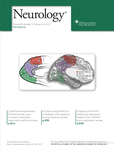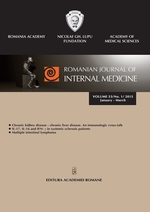
John Antonakis is psychologist by training, but his research has run the gamut from showing kids accurately predict election outcomes just by looking at candidates’ faces to teaching charisma to people in leadership positions. Now, as the newly appointed editor of The Leadership Quarterly, he’s tackling problems in academic publishing. But his approach is somewhat unique – he sees these problems as diseases (ie, “significosis”) that threaten the well-being of the academic literature. In a new paper, he’s calling on the efforts of researchers, editors, and funders to prevent, diagnose, and treat the five diseases of academic publishing.
Retraction Watch: What prompted you to think about problems in science publishing in terms of diseases?
Continue reading Got “significosis?” Here are the five diseases of academic publishing



 Neurology has partially retracted a 2016 paper, replacing a figure and removing the author who contributed it
Neurology has partially retracted a 2016 paper, replacing a figure and removing the author who contributed it 



 A researcher in Greece has issued extensive — what we sometimes call “
A researcher in Greece has issued extensive — what we sometimes call “